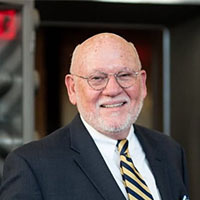Monroe RICO Act Lawyer, Connecticut
Sponsored Law Firm
-
 x
x

Click For More Info:
-
Maya Murphy, P.C.
266 Post Road E Westport, CT 06880» view mapDivorce & Family Law Representing Excellence
At Maya Murphy, PC, our attorneys strive to provide large firm service, experience, and ability, with small firm communication, attention, and accountability.
203-221-3100
Not enough matches for Monroe RICO Act lawyer.
Below are all Monroe Criminal lawyers.
James J Ruane
Motor Vehicle, Criminal, Consumer Rights, Business
James J. Ruane is a practicing lawyer in the state of Connecticut.
James O Ruane
Motor Vehicle, DUI-DWI, Criminal
Jay Ruane is a practicing lawyer in the state of Connecticut.
Paul Christopher Gusmano
✓ VERIFIEDCar Accident, Accident & Injury, Wills & Probate, Wrongful Death, Criminal
Attorney Gusmano was chosen for inclusion in 'Connecticut Magazine and New England Super Lawyers Magazine as a Super Lawyer in Personal Injury from 20... (more)
John T. Walkley
Military & Veterans Appeals, Federal Trial Practice, Family Law, Criminal
Status: In Good Standing
Jonathan Andrew Wetmore
Lawsuit & Dispute, Estate, White Collar Crime, Criminal, Accident & Injury
Status: In Good Standing Licensed: 18 Years
Jerome N Goldstein
Estate, Divorce & Family Law, DUI-DWI, Criminal, Accident & Injury
Status: In Good Standing
Kenneth M. Potash
Child Support, Criminal, Corporate, Business Organization
Status: In Good Standing Licensed: 28 Years
Jeffrey D. Ginzberg
Farms, Divorce, Child Support, DUI-DWI
Status: In Good Standing Licensed: 44 Years
 Joseph C. Maya Westport, CT
Joseph C. Maya Westport, CT Practice AreasExpertise
Practice AreasExpertise



